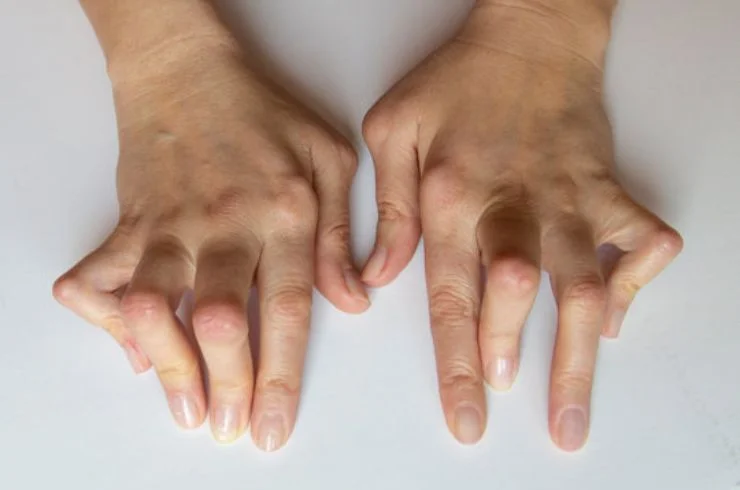Rheumatoid Arthritis

Rheumatoid Arthritis
Rheumatoid Arthritis (RA) is a chronic autoimmune disorder primarily affecting joints. It occurs when the immune system mistakenly attacks the synovium, the lining of joints, leading to inflammation, pain, and progressive joint damage. Unlike osteoarthritis, RA commonly involves smaller joints, such as those in the hands, wrists, and feet, and tends to affect joints symmetrically.
The hallmark symptoms include joint pain, swelling, stiffness (especially in the morning or after prolonged rest), and fatigue. Over time, RA can cause joint deformities, loss of function, and systemic complications, such as lung, heart, and blood vessel involvement.
Diagnosis involves a combination of clinical evaluation, blood tests (e.g., rheumatoid factor, anti-CCP antibodies, and inflammatory markers like ESR and CRP), and imaging studies like X-rays or MRI to assess joint damage.
Treatment focuses on controlling inflammation, relieving symptoms, and preventing joint damage. Disease-modifying antirheumatic drugs (DMARDs), including methotrexate and biologics, form the cornerstone of therapy. Non-steroidal anti-inflammatory drugs (NSAIDs), corticosteroids, and physical therapy may also be used.
Early diagnosis and aggressive treatment are critical to managing RA effectively, improving quality of life, and preventing long-term complications. Lifestyle modifications, such as balanced nutrition and regular exercise, play a supportive role in overall management.
